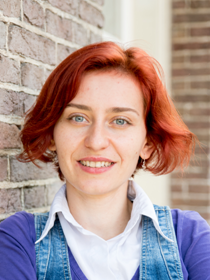NWO grant for project of Dr. Viktoriya Degeler
Assistant professor Viktoriya Degeler from Distributed Systems, received a grant for the NWO Smart Industry project "DiTEC: Digital Twin for Evolutionary Changes in water networks".
DiTEC proposes an evolutionary approach to real-time monitoring of water networks that detects inconsistency between measured sensor data and the expected situation, and performs real-time model update without needing additional calibration. Deep learning will be applied to create a data-driven simulation of the system. In case of leaks, valve degradation or sensor faults, the model is adapted to the degraded network until the maintenance takes place, which can take a long time. We will analyse the effect on data readings of different malfunctions, and construct a mitigating mechanism that allows to continue using the data, albeit in a limited capacity.
Viktoriya Degeler is the main applicant and coordinator.
The €800,000 project is a result of collaboration of the Bernoulli Institute (BI) of the University of Groningen (Viktoriya Degeler, Alexander Lazovik), Hanzehogeschool Groningen / Hanze University of Applied Sciences Groningen (Peter Kamphuis), Vitens (Hester Van Het Loo, Mario Maessen), and Researchable | Innovation through data (Frank Blaauw).
The project will last four years and covers two PhD positions for the group.
Read NWO's announcement:
https://lnkd.in/dNHwE9JB

More news
-
29 January 2026
Microplastic research - media hype or real danger?
-
27 January 2026
ERC Proof of Concept grant for Maria Loi
